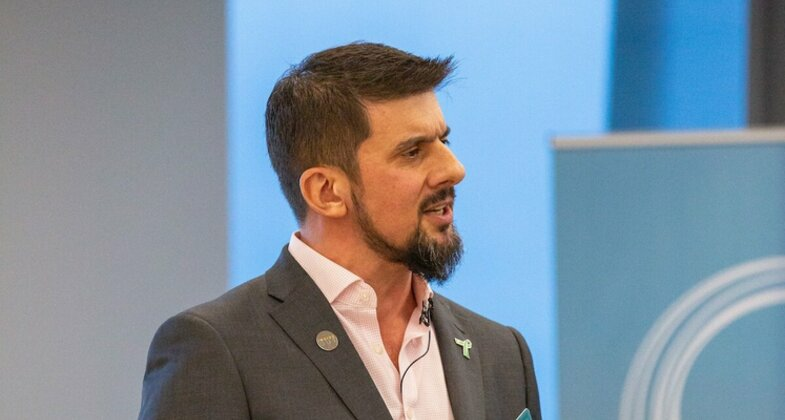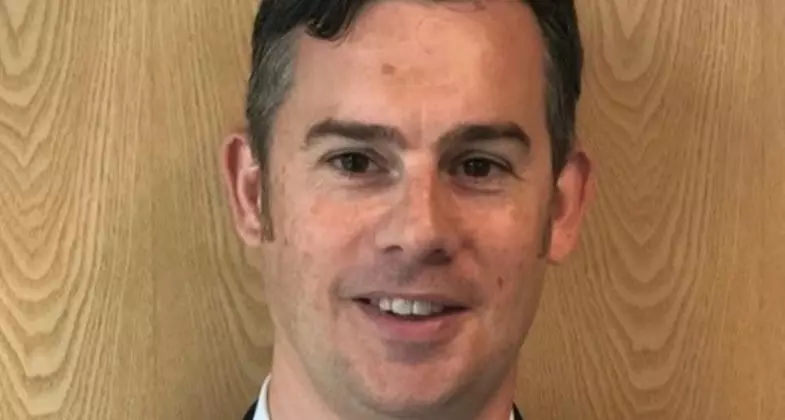Five minutes with…Richard Threlfall, Global Head of Infrastructure and Impact at KPMG
In our latest edition of ‘Five minutes with…’ we talk to Richard Threlfall, Global Head of Infrastructure and Impact at KPMG. Richard’s career spans over 25 years in infrastructure policy, governance, strategy and financing, advising both public and private sector clients in the UK and overseas.
Richard talks to Berwick Partners’ Joe Hughes about shifting priorities, successful project delivery as well as discussing talent pipeline and reflecting on his own career to date.
Major infrastructure projects create opportunity as well as challenge. In the current climate, where do you see the biggest opportunity in the UK?
As the threat from COVID gradually recedes, the urgent task is to find ways of rebooting our economy. Ever since Roosevelt’s New Deal in 1930’s America, the ability of a government to use infrastructure spend for economic stimulus has been recognised. So, it is no surprise that the UK government has rushed to confirm its pre-COVID commitment to additional infrastructure spend and is looking at ways of speeding-up project delivery.
What has changed, however, is the sense of priorities. It is widely accepted that we must only build new infrastructure in a way that is seen as fair, in terms of contribution to the levelling-up agenda and is sustainable and resilient.
In the first weeks of the lockdown I feared that the diversion of the world’s attention to the immediate threat would set back the sustainability agenda by precious, irreplaceable years. But actually, the reverse has happened. KPMG’s CEO Outlook COVID-19 Special Edition confirms that business leaders are taking the opportunity to re-evaluate their sense of purpose, are feeling the need to take a stance on societal issues, and to take action on climate change. Similarly, the public sector sees the present upheaval as an opportunity to reset the project pipeline.
In both central and local government, the new priorities for infrastructure are those which contribute to achieving Net Zero, digital connectivity, and the rebalancing of our economy. It means prioritisation of projects such as renewable energy, electric vehicle charging, green housing and energy efficiency retrofit to existing house stock, cycleways, even faster full-fibre and 5G roll-out, and regeneration and housing schemes across, in particular, the north of England. Investment in schools and healthcare facilities are also a high priority, as they are seen as relatively quick to implement, on what could be an efficient largely off-site manufacturing basis.
What factors do you believe are crucial for successful delivery of large-scale infrastructure projects?
Firstly, governance. In my view that is above all what makes or breaks the chances of a project being able to succeed, despite all the unexpected challenges it will inevitably face. As the former Managing Director of Thames Tideway, Mike Gerrard, has articulated how the governance requirements on infrastructure projects are different from, and arguably should be more demanding than, general corporate governance. This is because of the heightened accountability, to end-users and the public at large, the sheer scale of the investments, often running into billions of pounds, the potential impact, positive and negative, and the long-term nature of the investments which are as much for the benefit of future generations as this one. There is still work to be done for this point to be properly recognised and codified.
Secondly, team calibre. Infrastructure projects are hugely complex and require world-class engineering, financial, political and legal capability. Good projects recruit the best people they can and hire respected advisors and manage the whole as a single team. They then need brilliant leadership to ensure everyone is aligned.
Thirdly, funding certainty. Mega projects burn through money at a pace; the one way to guarantee delays and wasted cost is to hit a hiatus in funding availability. Good projects have their funding completely sorted, on the basis of robust geotechnical and other due diligence, with appropriate contingency, and clear delegation to the project company to spend the funding to deliver the scope.
What measures do you believe organisations need to undertake to secure the next generation of talent for major projects?
There is a quiet revolution underway in the infrastructure and construction sector. It is arguably the last industry to embrace technology, but it is happening now. And it is overdue as the productivity of the sector is poor. In the UK construction productivity has been flat for twenty years. That technology revolution is now emerging across the entire infrastructure lifecyle. It includes the development of building information models and digital twins, to inform project decision-making long-before serious money is committed on construction, the growing use of off-site manufacture, delivering safety as well as efficiency and reliability benefits, remote monitoring of projects and use of AI in project management, and the digitisation of asset management for existing assets.
This transformation of the industry has profound implications for its talent pipeline, and indeed for the future of businesses in the sector if they fail to adapt. IT and technology skills are already much more in demand, alongside traditional engineering skills. The ability to compile, manipulate and draw insight from data will become crucial in a sector where the volume of data is vast – imagine for example, the data related to the operation of city through a single day. We are already seeing new entrants into the market whose entire business is data-based. The business models of both engineering consultancies and Tier 1 contractors are under pressure, not just in the UK but all over the world.
What have been the biggest influences on your leadership style throughout your career?
I have been fortunate to have worked with some hugely inspirational individuals, and my own leadership style has developed from that experience. The individual who I would most credit is Nick Chism, who hired me into KPMG and was most recently in a Director General role at BEIS. I loved the autonomy and sense of personal responsibility that he gave me, and I believe that brings out the best in people generally. I think the default assumption should be to trust those we work with, and offer support and praise, and if things go wrong just learn from that for the future.
The other thing Nick did really well was to engender excitement for what we were doing. I vividly remember a set of business plan presentations being given to the team in the windowless basement of a hotel conference room near our former office in Salisbury Square. They first three or four presentations were incredibly dull, then Nick took the floor and instead of standing behind the lectern he began a series of leaps down the centre aisle between our chairs, with each leap representing a £1m revenue opportunity in the plan.
Today, I don’t think even Nick’s revenue leaps is enough, though. We need to convey a real sense of purpose about what we do. When I took over leading KPMG’s Global Infrastructure network, I realised that our vision was only expressed in terms of a big revenue target and being trusted by clients. Yet, what we were doing was, and does, transform lives. Surely it is more important that our work is helping to tackle climate change through renewables projects, for example, building modern housing for deprived communities in developing markets, and creating economic growth through transport and digital projects that make it easier for goods to get to their market. The vision statement I wrote two years ago, says “We connect the world; we build prosperity; we reduce poverty; we create sustainable quality of life; we enable a better future for everyone, everywhere.” I truly believe that is why we are in business.
With such an extensive experience in the industry, what would your key piece of advice be to those looking to move into a position of leadership within the infrastructure sector?
There are numerous different types of role within the infrastructure sector, so the starting point is inevitably to have as many different conversations as you can and get a feel for where your skills would be most effective. Some leadership positions are deemed to require an engineering background, but many do not. There is also an important distinction to appreciate between the world of infrastructure projects and that of infrastructure assets. There is a huge industry around the planning and construction of individual projects, but the vast majority of the value in the sector is in assets that already exist and have to be operated and maintained.
Once you have got through those sorts of considerations, the most important thing is to recognise that this sector is about delivering a service to the community. Infrastructure is the foundation of our civilisation. It needs brilliant people to maintain and enhance those foundations, so I hope some of those who read this interview will be inspired for a career change into a sector which is both intellectually rewarding and offers a real sense of purpose.
For more information, please contact Joe Hughes, a consultant in our Infrastructure practice.




